Announcer:
The following program is a PBS Wisconsin original production.
Frederica Freyberg:
I’m Frederica Freyberg. Tonight on “Here & Now,” a first look at a study that reveals economic risks connected to the Foxconn project in Mount Pleasant. A closer look at efforts to boost African-American leadership in Milwaukee. And political panelists McCoshen and Ross deliver some political thanksgiving. It’s “Here & Now” for November 29.
Announcer:
Funding for “Here & Now” is provided, in part, by Friends of Wisconsin Public Television.
Frederica Freyberg:
The multi-billion dollar incentive package Wisconsin gave tech giant Foxconn was more than a bad deal. It could depress state economic activity by tens of billions of dollars over the next 15 years. That’s according to a new special study by economists at George Mason University in Virginia. In tonight’s first look, we talk with one of the authors. Michael Farren is a research fellow at Mercatus Center at George Mason. He joins us from Asheville and thanks very much for being here.
Michael Farren:
Thanks so much for having me.
Frederica Freyberg:
Why did you research Wisconsin’s $3.6 billion plus subsidy to Foxconn in particular?
Michael Farren:
So we were doing an analysis. Asking the question: Do economic development subsidies actually work? That is do they actually create economic growth at the local level and the national level? We decided to use Foxconn as a case study because it was in the news and there was a lot of information already available about it.
Frederica Freyberg:
Your premise and conclusion, again, is that such targeted subsidies, especially gigantic ones like Foxconn’s, do more harm than good. In fact, as we lead with you say the subsidy may depress state economic activity by tens of billions of dollars over the next 15 years. How so?
Michael Farren:
So the first question is is that most studies that examine these subsidies never count the costs. So you have to understand that for every dollar you pay in subsidies to a particular company, you have to tax that away from taxpayers and that has its own economic impact, a negative economic impact. The $3.6 billion subsidy that Wisconsin offered to Foxconn would decrease economic growth in the state by about $20 billion over the next 15 years.
Frederica Freyberg:
You also assailed the so-called multiplier effect of spin-off jobs related to Foxconn. Why in your research doesn’t that add up?
Michael Farren:
The multiplier effect is valuable, but most of the time, multipliers take place naturally. You don’t actually need to incentivize them. That’s part of the issue with economic development subsidies in general, that they only work in the context of swaying where a company decides to locate or on expand between 2% and 25% of the time. That means about 75% of subsidies or more are just pure wastes of public money.
Frederica Freyberg:
Your research also discusses how else the state of Wisconsin might have used $3.6 billion. Like how?
Michael Farren:
So one humorous example that we used is that the state could have instead subsidized seven square miles of greenhouses to move Florida orange growers up to the upper Midwest. That would also create multipliers and would create an exportable industry, but it’s obviously not a good use of taxpayer money.
Frederica Freyberg:
You talked about how that $3.6 billion might have been plowed back into tax cuts. Would that have been more economically beneficial?
Michael Farren:
Absolutely. So right now, with the current corporate income tax rate, if that subsidy to Foxconn had instead gone to all companies throughout the state, it could have lowered corporate income taxes by 22%. That would do a lot more for broad-based economic growth rather than picking one favorite and rolling the dice on it.
Frederica Freyberg:
Now, your report piles on with the idea that subsidies actually reduce competitive practices among companies that receive them because basically those companies are playing with somebody else’s money?
Michael Farren:
Absolutely. So subsidies essentially give a monopoly advantage to the receiver of the subsidy. One of the sayings about monopoly advantage is that the best part of monopoly power is having an easy life. So essentially it allows the company that receives the subsidy to be a little bit less attentive to consumer desires, to be less focused on production and efficiencies resulting in less economic growth rather than competition, which forces companies to really be focused on pleasing customers and eliminating waste from their production.
Frederica Freyberg:
It almost goes without saying that you and your fellow economists are not good with these kinds of targeted subsidies, but you say that states don’t even need to offer them because other factors for where companies might locate are more important, like labor costs. But would Foxconn have ever come to Wisconsin without the billions in targeted subsidies?
Michael Farren:
So that is an open question and no one can really answer that. The fact of the matter is is that most subsidies don’t matter and even Amazon HQ2, which we also studied last year, was — its focus was on tech talent. That’s the reason why it chose Arlington, Virginia as a place to locate. And also on the ease of doing business in Virginia. They only also chose New York City before pulling out of that deal later on because they weren’t sure that Arlington, Virginia could provide enough talented workers for their tech industry. So the end of the day, it’s all about production and access to customers. Subsidies are a secondary or even tertiary consideration.
Frederica Freyberg:
And again you say that, quote, subsidizing governments are wasting their money” and presumably our money. What’s been the reaction to your paper, from policymakers or other economists, who tout such subsidies?
Michael Farren:
So generally the reception has been very good. And we’re only saying something that economists have been saying for a very long time. We’re just trying to get the message out into the broader public understanding a little bit more. And it’s very well-understood that a lot of policymakers would get away from offering these subsidies if other policymakers almost also promised to do so. We waste about $45 billion a year in state and city taxes on these subsidies that could be repurposed to tax cuts, to grow the economy or other valuable public services. That would be definitely something that would grow the economy rather than shrink it.
Frederica Freyberg:
All right. We need to leave it there. Michael Farren, thanks very much for joining us.
Michael Farren:
Thank you.
Frederica Freyberg:
In the midst of a busy thanksgiving holiday travel season that has seen its share of bad conditions, another threat on the roadways: distracted driving. Last year, Wisconsin saw 60 fatal car accidents as a result. In tonight’s closer look, a new bill in the state legislature aims to target one common form of distraction: the use of smartphones. Marisa Wojcik reports from Hudson.
Tom Goeltz:
I thought I could do it safely. I did it for 15 years without an incident. And I was pretty darn good at it. And I thought, well, I’m a safety consultant. I should be good at this.
Marisa Wojcik:
For years, Tom Goeltz of Hudson didn’t see using his phone while driving as a very big deal.
Tom Goeltz:
Most of it was legal that I was doing. Talking on the phone. And my clients need to hear from me. My kids need to hear from me.
Marisa Wojcik:
Even with his 33 years of experience in occupational safety, he didn’t think there was a significant danger of something happening while he was behind the wheel.
Tom Goeltz:
You don’t think that you’re going to crash on your way to work and your life is going to change.
Marisa Wojcik:
But on a February day in 2016, Tom wasn’t the one in danger. It was his 22-year-old daughter.
Tom Goeltz:
Unfortunately, my daughter Megan was killed in a car crash. And it was due to a distracted driver. And Megan was pregnant at the time. And I lost an unborn grandson. She was in a car. She was driving back here to our house, and she was sitting at a stop sign waiting for oncoming traffic when another vehicle crossed over the center line of the road.
Marisa Wojcik:
From that day, nearly four years ago, Tom has refocused his personal and professional life to raise awareness about the dangers of distracted driving.
Tom Goeltz:
She didn’t stand much of a chance. And that’s what happens in distracted driving-related crashes. You know, the vehicles, they’re not slowing down before they hit somebody else.
Marisa Wojcik:
But there’s one trend Tom holds particularly responsible for this. Smartphones.
Tom Goeltz:
It’s uncanny the relationship between our traffic fatalities on our roads increasing and when we all started getting smartphones.
Marisa Wojcik:
A survey from the National Highway and Traffic Safety Administration shows 5.3% of drivers reported using a cell phone while driving, with the majority of those drivers being ages 16 to 24.
Nate Henriksen:
Those statistics can often be misleading.
Marisa Wojcik:
Wisconsin State Patrol Lieutenant Nate Henriksen says these figures are often under-reported.
Nate Henriksen:
Admission isn’t always something that we’re privy to but — so we’ll take appropriate enforcement action based on the — I guess the evidence that we have, whether it being evidence of a speeding violation or following too close.
Marisa Wojcik:
The message from the Department of Transportation and the State Patrol is that overall distracted driving is the problem and that includes smartphones.
Nate Henriksen:
Last year, in 2018, there were about 23,000 traffic crashes which were a result of distracted driving. 9,000 of those crashes were injury crashes. At least 60 of those were fatality crashes.
Marisa Wojcik:
In Wisconsin, it’s illegal to text while driving, stream entertainment or use a handheld device while driving through a work zone. But it is legal to talk on your phone. So there’s a bit of a gray area for what you can and can’t do on your device.
Nate Henriksen:
Stop them; talked to them about that. Hey, I saw that you were doing something else other than driving. What’s going on? Oh, I was just, you know, talking on my phone. Well, it’s not illegal to talk on your phone unless it causes you to become distracted.
Marisa Wojcik:
But Tom is hoping to change that with a new bill in Wisconsin that would place stricter limits on what you can do on a device while driving.
Tom Goeltz:
One touch. They can touch it once. That’s it. You can’t scroll. You can’t multiple touch. So it has to be basically in a hands-free mode.
John Spiros:
I think a lot of people would say, you know, why do we need it?
Marisa Wojcik:
State Representative John Spiros of Marshfield authored the bill.
John Spiros:
And to me, it saves lives. Has the potential to save lives. Every state that it’s been put in, it has saved lives.
Tom Goeltz:
What we’ve seen in other states that have adopted a hands-free law is about a 15% to 20% decrease in fatalities and serious crashes. Is that perfect? No. But it’s better than nothing.
Marisa Wojcik:
The bill was introduced in October. But despite bipartisan support, it hasn’t gotten very far this session.
John Spiros:
I mean it’d like to get it done. I’m hopeful that it gets done. I’m hopeful that we get a hearing at least so we can talk about it. But bottom line is even if it doesn’t get done this time, at least it’s ready to go next session. We’ve vetted everybody. And we can get it out earlier.
Marisa Wojcik:
Tom helped get similar legislation passed in Minnesota. He said it wasn’t a priority for lawmakers there either until more people like him came out and had their stories heard.
Tom Goeltz:
So I need to do more. I need to keep plugging away. It’s frustrating. Every year we wait, it’s just hundreds of more people die.
Marisa Wojcik:
The driver responsible for Megan’s death pled guilty to reckless driving, a gross misdemeanor.
Tom Goeltz:
My family’s had a lot of — we’ve had a lot of difficulty dealing with this situation.
Marisa Wojcik:
Tom says his memory of Megan keeps him going.
Tom Goeltz:
She was a CNA. She was a Certified Nursing Assistant. She liked to work with the elderly. We got a lot of people that came to the funeral that were family members of the people that she took care of in hospice. We heard about it after she died from the family members, how big of a difference she made. I remember feeling so proud of her at the time, and I just, you know, wanted to just tell her that.
Marisa Wojcik:
For “Here & Now,” I’m Marisa Wojcik.
Tom Goeltz:
She knows. She knows.
Frederica Freyberg:
Fifteen states have enacted a so-called hands-free law. Of those, 12 saw a decrease in fatalities within two years.
Next, what to do about Milwaukee, where a new study from a financial news site ranks the city worst in the nation for African-Americans. The study points to disparities between black and white people in the way of income, unemployment and home ownership. But hope may be on the horizon as the African-American Leadership Alliance there actively seeks solutions, including developing and supporting African-American leaders. Antonio Riley is Board President for the Alliance. He joins us now from Milwaukee and thanks very much for doing so.
Antonio Riley:
Thank you for having me.
Frederica Freyberg:
Now, your Alliance, I’ve read, was founded in 2017 and its members are ready now to activate your mission goals. Goals stated on your website to within five years redefine Milwaukee as top-ranked for African-Americans, ensure African-American leaders want to live and work in Milwaukee and enhance a thriving and growing pool of talented African-American leaders there. What are your action steps to reach these goals?
Antonio Riley:
Well, first of all, let me thank you for the opportunity to be with you today to talk about our vision and goals, not just for Milwaukee, but for the entire southeast and for our region here in Wisconsin. But our goals have been real clear that we really focus on the fact that we need to work hard at changing some of the demographics, deficiencies that we see for African-Americans here in Milwaukee. One of our goals is to make Milwaukee by 2025 a place where African-American leadership can thrive. And another one of those goals as you mentioned earlier, it is about a talent pool also. Now, as part of those efforts, we are engaging with allies, the business community and the like with actual deliverable strategies on how to achieve that goal. When it comes to making sure that we are a community. And by 2025 where African-Americans can strive and that we have that talent pool as well. We work with the Metropolitan Chamber of Commerce to come up with what we’re calling the region of choice, which is setting some really clear, measurable goals about how we are going to get there in terms of, one, doing two things. One, it is to increase the number of African-Americans and Latinos in management positions by 25% by 2025. And it is to increase African-American and Latino employment by 15% by that same time. In order for us to achieve those goals, we’re going to have to make sure that people who are here in Milwaukee, in the metropolitan area, are getting the skills they need by which to climb that corporate ladder. When we recruit people into this region, make sure they can live, work and play here. That means they would have to stay here. So all those goals are very important to us achieving that benchmark by 2025.
Frederica Freyberg:
Why are African-American leaders in Milwaukee important to turning the city around for all people of color?
Antonio Riley:
Well, you know, it’s very important. And I’ll just put it to you, answer your question this way. At the end of the day as a community, we have to take responsibility for ourselves. And we really do. And a lot of us do. And we have to simply say that leadership within our community, not just in the corporate area, but if AALAM consists of folks in corporate Wisconsin, Milwaukee as well as folks from the neighborhood, from not-for-profits and all sorts of other groups and it’s not just AALAM doesn’t just consist of strictly African-Americans. So we want to make sure that African-Americans’ voices are being heard and they are a part of that conversation and thus a part of helping us to achieve the opportunity to build a stronger region. So that’s important, that we lead for ourselves as well.
Frederica Freyberg:
Why has Milwaukee in your mind languished and ranked so poorly for disparities historically?
Antonio Riley:
Well, that is a very large question that has lots of different nuances to it. And we know of the racial segregation that exists within not just the city of Milwaukee, but throughout the entire region. One of the other policy — one of the other areas of AALAM as you know from our website, it is to be a leader on public policy, engaging with elected officials and the like, talk about those strategies that build also the African-American community, but also talks about how do we transform the entire region. But we have lagged behind. And it’s unfortunate, for a host of different reasons. It comes to housing, the segregation, the transportation issues. All those things. And our school systems. And let me also say our criminal justice system as well. And so we have to talk about all those symptoms of what exists in our community. Now let’s talk about how do we work with allies to figure out measurable strategies to begin to address it.
Frederica Freyberg:
Briefly and finally, describe how committed your group is toward these goals for Milwaukee?
Antonio Riley:
Oh, we are very committed to it. I mean, this came out of the AALP, which has been for the last ten years one of the premiere leadership training programs to develop African-American leadership in corporate Milwaukee, some 200 alumni. We gathered–we went from that effort and we then called together about 80 folks, African-American leaders and corporate folks, to do a session back in May. And that’s how we then went forward and launched AALAM publicly and established a board, established a not-for-profit status. Next year we are going to be retooling the African-American leadership program. That’s going to be retooled and relaunched in March of 2020. We will also be hiring what we call a lead champion catalyst, which means our new executive director, who will then hire additional staff to further the mission. So we are committed to it and we thank all of our allies and partners out there for all of their support. We’re looking forward to getting this work done.
Frederica Freyberg:
All right. Antonio Riley, thanks very much for joining us.
Antonio Riley:
Thank you.
Frederica Freyberg:
In these hyper, uber, uncontrollably partisan times there must be something partisans can come together on, like being thankful in this season of giving. Well, maybe. We check in on that now with our political panel of two, conservative Bill McCoshen and liberal Scot Ross. Thanks for being here.
Bill McCoshen and Scot Ross:
Thanks for having us.
Frederica Freyberg:
So you guys had an assignment and that was to give us some of the things that you are thankful for. We will start off with Bill McCoshen’s first one. That is, that you are thankful that Speaker Nancy Pelosi put Adam Schiff in charge of the impeachment inquiry. Why are you thankful for that?
Bill McCoshen:
First of all, Happy Thanksgiving weekend to you and your entire audience.
Frederica Freyberg:
Thank you.
Bill McCoshen:
I am super thankful that Nancy Pelosi put Adam Schiff in charge of the impeachment process. I don’t think it could have gone better for Republicans. First of all, I think he’s the least credible congressman in D.C. He was the guy that told us there was collusion hiding in plain sight. Remember that? And there wasn’t. He said that there was evidence that would take down Donald Trump as it relates to this impeachment. There hasn’t been any proven. He’s the least credible guy. Secondly, turns out the book was much better than the movie on this. The poll numbers for the impeachment was growing when they were having secret depositions down in the basement of the House of Representatives. When they put this on TV, Adam Schiff is sort of a creepy-looking guy. Didn’t sort of work out for him. And I think it ultimately played to Republicans’ benefits. And national polls and state polls have now shown that Donald Trump’s numbers have flipped as relates to impeachment.
Frederica Freyberg:
That is true. Your response?
Scot Ross:
My response is that I’m actually very happy that the Democrats are moving forward with the Constitutionally-required provision that they hold corruption accountable in the executive. And, you know, listen, I saw — I just saw a poll, you know, early, middle week, that said 60% of women in the United States want impeachment and removal and that there is a majority of people who want impeachment and removal. I know the Franklin poll had some numbers about — but to believe those Franklin numbers, you have to believe that liberals — you know if you look at the cross tabs, that liberals increased the amount that they — liberals increased — reduced the amount that they are for impeachment by 10% to 15%, as did the 18 to 44. I just don’t think that’s credible with all due respect.
Frederica Freyberg:
Let’s go then to your thankful note. You say that you are thankful that the Democrats have held Trump to account for his endless corruption on this same topic.
Scot Ross:
Absolutely. I mean it’s so important because if the president can get away with this corruption, then anyone can get away with things. It’s a reckless lawlessness that we don’t need. I think that the case has been laid out in plain sight. I mean my God, the president admitted that he — that what he did, his chief of staff admitted what he did. Again, I understand what Bill’s task is. He’s got to muddy up the waters. But who are you going to believe in this? Career public servants who testified under oath with a consistent time line and no derivation in their stories. Or guys who won’t go under oath.
Frederica Freyberg:
What about that?
Bill McCoshen:
Democrats are running a risk here. They’re becoming the party of Chicken Little. The sky isn’t falling. It hasn’t been falling every day since Donald Trump took office in January of 20 — you know, two years ago. So I think they run the risk of not having an agenda and actually getting issues done that people care about. Polling now says that voters say that politicians and the media care more about this than they do.
Frederica Freyberg:
Let me ask you both what you think of Rudy Giuliani?
Scot Ross:
You can hear that? Wait, I can hear it. It’s that sound when the bus backs up, because Trump’s basically getting ready to roll him under that. You know, I guess we’ll have to see what that insurance policy is that he’s been crowing about.
Bill McCoshen:
Rudy’s got sharp elbows. I don’t think Trump’s going to roll him under any bus. Who knows how that’s all going to shake out but I’d rather have Rudy in the foxhole with me.
Frederica Freyberg:
Ok, Scot Ross, you also say that you are thankful that the Democratic Party is the party of inclusion and empowerment. That’s very nice.
Scot Ross:
Well, but let’s not — you know, I’m a white guy, so there’s clearly a lot of work to be done in the Democratic Party, but I am proud to be a member of the Democratic Party where the ideas of individual — respecting individual rights and needs are a part of the party platform. Whether it’s issues of race, LGBTQ, issues of gender. You know, all these issues of diversity are critically important to the Democratic Party. And why it represents people in a much better way than the Republican Party does. One thing in particular. After the House elections in 2018, the Republican — the representation of white men in the Republican House went from 86% to 90%, whereas the Democratic Party, white men, we went from 41% to 38%.
Frederica Freyberg:
Do you mean to say that the Republican Party does not empower or include people?
Scot Ross:
I think when you have a guy, a white nationalist, white supremacist like Steven Miller directing policy that are so harmful to so many folks, I think the reason the Democratic Party is more reflective of America is because it’s got more of America in it. You know, and you see that in the policy, you know, in what it’s concerned about.
Bill McCoshen:
Republicans just elected the first black attorney general in Kentucky history a couple weeks ago. I think Donald Trump is going to be proud to run on his record for minorities. Unemployment for blacks and Hispanics is the lowest in history. Their incomes are going up. Those are things that Barack Obama, an African-American president, could not say. Unemployment actually increased while he was president. So I think while I understand Scot’s point and I appreciate it, I think the Republican Party has come a long, long way on this and we’re actually going to be able to compete more favorably in the minority communities in 2020.
Scot Ross:
Until the president is not tweeting by the light of a tiki torch about s___hole countries and things like that, I think the Republicans have a lot of work to do.
Frederica Freyberg:
We will leave that one there. We’ll go next to Bill McCoshen’s last note of thanks that Republicans in Wisconsin successfully pushed for a middle income tax cut.
Bill McCoshen:
This is important. I mean as people get ready to start buying their holiday gifts, they have a little bit more money in their pocket because Republicans insisted that Tony Evers deliver on the promise he made during the campaign which was to lower middle income taxes. He vetoed a bill in February that would have done that. They put it in the state budget a little later in the process. Ultimately the governor signed that. It’s not only good policy. It turns out to be great politics ’cause not a single Democrat voted for those bills, either the one in February or the one in June. They’re going to see information about that in their campaigns in 2020 for sure.
Scot Ross:
The Republicans are hauling Tony Evers to court because he wanted to increase education spending. That’s all you need to know about the economic priorities of the Republican Party.
Frederica Freyberg:
We leave it there. You guys have a great holiday weekend.
Scot Ross and Bill McCoshen:
You too.
Frederica Freyberg:
You as well.
Thank you. That is our program for tonight. I’m Frederica Freyberg. Have a great weekend.
Announcer:
Funding for “Here & Now” is provided, in part, by Friends of Wisconsin Public Television.
Search Episodes
Related Stories from PBS Wisconsin's Blog

Donate to sign up. Activate and sign in to Passport. It's that easy to help PBS Wisconsin serve your community through media that educates, inspires, and entertains.
Make your membership gift today
Only for new users: Activate Passport using your code or email address
Already a member?
Look up my account
Need some help? Go to FAQ or visit PBS Passport Help
Need help accessing PBS Wisconsin anywhere?

Online Access | Platform & Device Access | Cable or Satellite Access | Over-The-Air Access
Visit Access Guide
Need help accessing PBS Wisconsin anywhere?

Visit Our
Live TV Access Guide
Online AccessPlatform & Device Access
Cable or Satellite Access
Over-The-Air Access
Visit Access Guide
 Passport
Passport






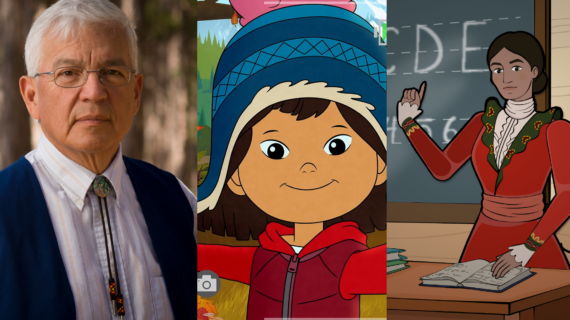
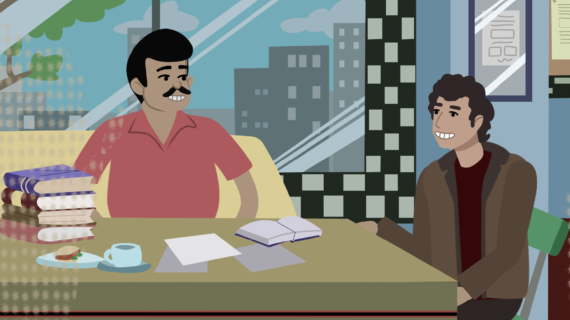
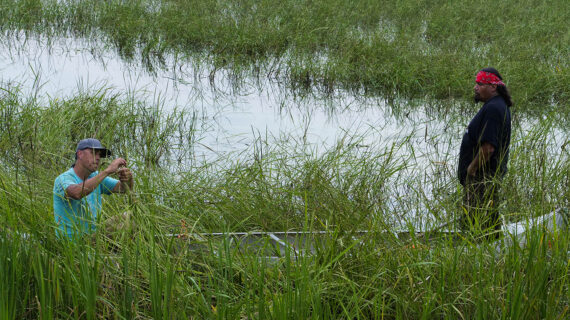
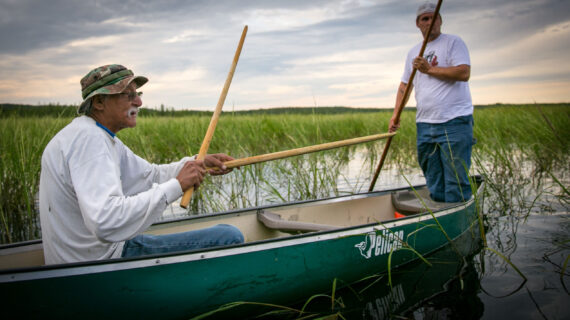

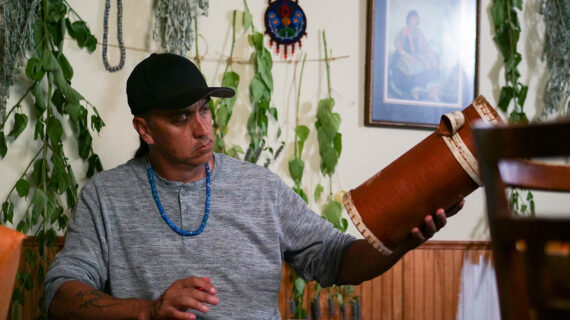


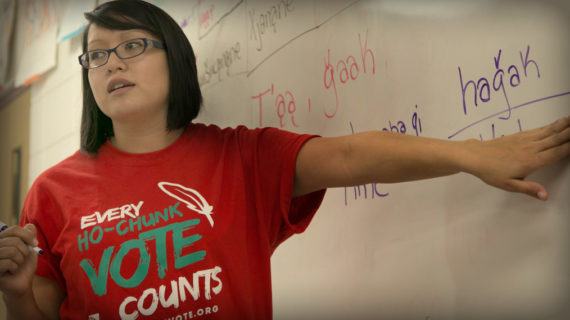

Follow Us